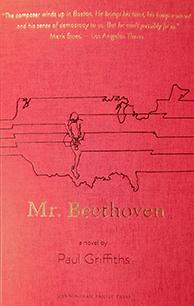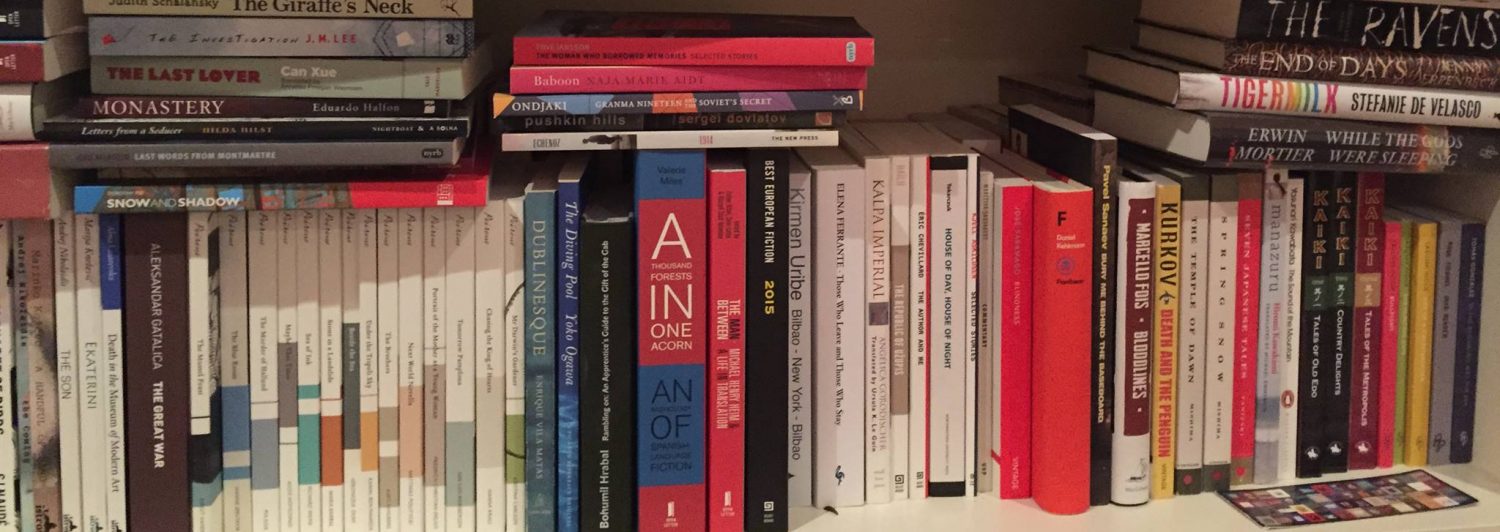
Perhaps the only touch of genius which I possess is that my things are not always in very good order…
Ludwig van Beethoven died in 1827, aged 56, however Paul Griffiths’ speculates that Beethoven lives into the 1830’s taking up a commission, made by the Boston Handel & Haydn Society, to compose a Biblical Oratorio based on the Book of Job. Not only does Paul Griiffiths’ speculative work imagine that Beethoven lives longer, and he continues to compose more, the novel imagines the composer travelling to the US to fulfil these obligations. Due to his profound deafness he tees up with a resident of Martha’s Vineyard, a young girl named Thankful, who teaches him how to use sign language and who acts as his interpreter.
This is the basic premise of Paul Griffiths’ novel; however it is not only in the speculative tale that the riches prevail here. Griffiths is a former music critic of ‘The New Yorker’ and ‘The New York Times’ and, author of ‘Let Me Tell You’ a first-person narration using only the 481-word vocabulary that Shakespeare gives to Ophelia in Hamlet. He also contributed to the 2019 collection ‘The Penguin Book of Oulipo’, the literary constraints applied in this book are rich and varied, it is through the Oulipean constraints and musical knowledge where Griffiths’ book excels.
The novel opens with a past tense chapter, Beethoven is aboard a vessel travelling to the USA, we then move to research of possible vessels, “one sailing for Boston in 1833 from continental Europe, and from a port that would have been accessible at the time from Vienna without quite some difficulty.” Griffith lands on the brig Florida and using the “Familysearch website” comes up with a list of fellow passengers.
Throughout the novel there are signs of meticulous research, I assume it is all correct as I am not going to check it, Beethoven moving to a country estate owned by the Quincy’s to continue his work allows for rich research of the homestead, the extended family and more and when this research is mixed with playful constraints the book becomes an entertaining and unexpected read.
As advised in the ‘Notes’, “Words attributed to Beethoven, throughout; are taken as complete clauses – and, in most cases, complete sentences – from his (translated) letters”. We have chapters, longer than usual, that are a single sentence (Chapter 38) and we even have the readers interrupting the author;
Sorry, but we have to stop you there. You keep teasing us with this “great work” while offering as little information about it as you can get away with. Like these characters who are presumably from the Handel and Haydn Society, perhaps Richardson, Chickering and some other, we are being left in the dark. We know, yes, that this is an oratorio his is supposed to be writing, the “great composer,” as you archly call him, or “distinguished visitor,” or whatever else to avoid giving him his name, which of course we all know, which you had to divulge here and there, for the purposes of your story. Yes, what exactly are the purposes of your story? Do you want to tell us that? Or is that not part of your plan? If there is a plan.
There are chapters where the oratorio’s text is presented on the left-hand page and the action in the crowd appears on the right-hand page. There are letters and cryptic relations, a widow muse? Monologues revealing the detailed research (for example, a walk where the composer, although tone deaf, is addressed about the history and the surrounds)
You fill this book with information. As if to taunt us, you tell us all things of things we do not need to know, such as the names and ages and trades of other passengers (the shipboard septet – oh, please) on the vessel that could have conveyed the “great composer” to Boston. Remember that one? And we know where you find all these annoyingly irrelevant details. You even admit as much: on the Internet. So what?
There are cameo appearances by numerous well-known literary greats, Longfellow appears and there is speculation that Beethoven’s possible composition of an Indian operetta, a cross over and potential inspiration for ‘The Song of Hiawatha’. Herman Melville makes an appearance as a young boy interviewing the maestro;
Q.: (if I had employed my better judgement, it may very well be that I would not have broached this topic, but I include the question here for the sake of the composer’s response, which startled me by its force, as by its unexpected metaphor.) How did you react to the controversial article adverting to your music that appeared recently in one of the German musical periodicals?
A.: I have not read the article. I no longer receive the paper, which is a shabby proceeding. If the editor does not rectify the statement, I shall cause him and his consumptive chief to be harpooned in the northern waters among the whales!
Could Beethoven have sown the seeds for the creation of ‘Moby Dick’ AND ‘The Song of Hiawatha’? Wonderful, controversial (impossible) speculation.
There are a few chapters where I felt a peripheral character was created simply so a line from Beethoven’s letters could be used, for example a discussion takes place over the family breakfast table where Daniel Gregory reveals he is unable to sing the solo in the oratorio and has passed the part to Lowell Junior. Beethoven says; “I was indeed, not a little surprised when I found the boy in a distant room practicing all alone, and neither disturbing not being disturbed by others.” However, there are counterpoints to this, The Composer’s address to the Chorus before the first concert, the interview by Herman Melville are but two examples of using pre-existing material to create a new tale.
Add to all the playfulness the fact that Griffiths has created part of Beethoven’s imagined oratorio and you know you are reading a very skilled writer, one who seems to be having a great time playing with his readers, leading us one way, then the next, throwing in other characters of the era, you never know what the next chapter will throw up.
The book closes with a future tense chapter, the Composer, the members of the Boston Handel & Haydn Society and Thankful are on the dock.
Opening with past tense, closing with future tense, although a linear narrative, gives this an off-kilter unreal, speculative world feel. A very enjoyable and playful read.
Perhaps the only touch of genius which I possess is that my things are not always in very good order…
David Hebblethwaite has a very interesting approach to this novel, the element of communication, you can read his take here .
The book itself is a stunning production by Henningham Family Press (“a microbrewery for books”), litho printed in lilac-grey. French-fold red Takeo Tant cover, debossed with a gloss black and gold design (thanks Paul Fulcher). The paper using recycled coffee cup technology!! I received my copy of this book through my subscription to the Republic of Consciousness Prize, where a monthly subscription to the Prize is rewarded with a book from a small independent press (fewer than five staff) each month. More information on this subscription offer can be found here.

Sounds fascinating, as well as being a beaytiful object!
LikeLiked by 1 person
This is a whirlwind tour of everything that’s wonderful about the book. I do love that bit where he lets the readers interrupt! I had no idea the paper was made from recycled coffee cups – excellent stuff.
LikeLiked by 1 person
Thank you for stopping by David, I’m not sure if it’s the paper or the cover (it’s mentioned on the page with the ISBN etc), yes it’s a wonderfully playful, fun book, I can say it doesn’t go well back-to-back with DBC Pierre (but more on that later).
LikeLike
Pingback: Republic of Consciousness Prize Longlist 2021 | Messenger's Booker (and more)